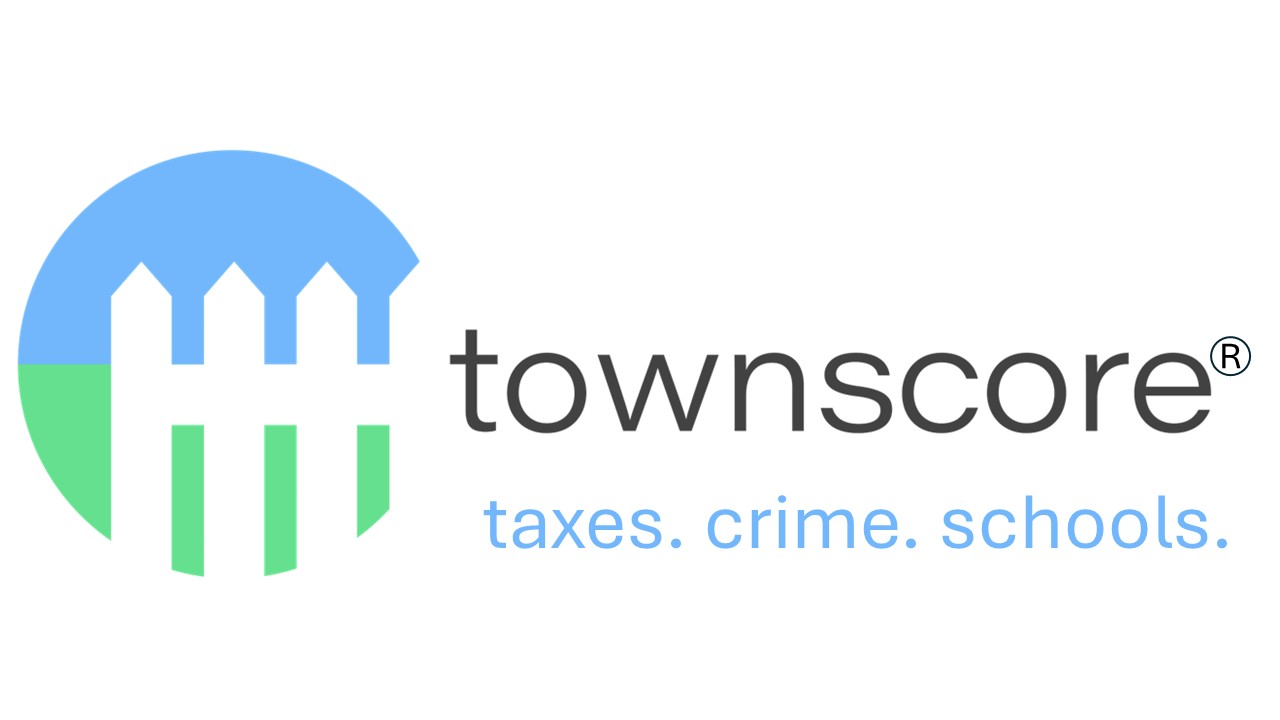The recent appreciation in housing combined with the jump in mortgage rates has made home ownership feel unattainable for many people. But there is a silver lining for those on the sidelines: Renting can create as much wealth, or even more, as buying. There are of course many factors driving the buy versus rent decision: whether you value permanent housing over flexibility, your comfort level with borrowing, and what you think might happen to the housing market.
Even though housing prices have jumped since COVID, the jump followed more than a decade of stagnating and even falling prices. And while mortgage rates are higher now than in the past two decades, they are not the biggest driver of housing expense. Local taxes and fees, insurance, and maintenance can outweigh mortgage costs, and more so over time (see a blog post on Insights, What State has the Lowest Cost of Living? – TownScoreReport). We examine those economic circumstances that influence the wealth creation potential in the buy versus rent decision.
To prospective buyers who feel as if they have missed the homeownership boat, know that renting can be superior to owning from a wealth creation perspective. If you buy, you tie up your capital that could be used to earn returns in the stock and bond market. You pay property taxes, maintenance and repairs, and homeowner’s insurance. You are illiquid and cannot necessarily sell and move quickly. You put your invested capital at risk as prices can and often do go down.
But there are also many circumstances where buying generates more wealth than renting. While no one has a crystal ball into future economic drivers, we evaluate the buy versus rent decision based on current market conditions and those over the past two decades, which include:
- Mortgage rates,
- Local government taxes and fees,
- Annual house maintenance and repair,
- Cost of homeowner’s insurance,
- Investment return on funds that would have been a down payment and on savings of renting vs. owning,
- Rents, and
- House price appreciation over your holding period.
We evaluate the economics of buying versus renting based on a $500,000 house price, a 20% down payment of $100,000, a marginal tax rate of 25% for the tax benefit of the mortgage interest deduction, and when you sell, a 5% sales commission. For both buyers are renters, we assume a holding period of ten years, meaning how long you would live in the location. For renters, a $3,000 rental payment is approximately what would correspond to a $500,000 house value. The balance of the parameter values used as inputs to the financial math are summarized here:
| Mortgage rate | 6.6% |
| Maintenance on the house (lawn, snow, etc.), annual | $3,000 |
| Home and appliance repairs, average annual | $6,000 |
| Home insurance, annual | $2,200 |
| Local Government Taxes and Fees, annual | $15,000 |
| Investment Return, after tax, annual | 5% |
| House price appreciation, annual | 4.51% |
| Inflation, annual | 2.81% |
These parameters will of course vary based on the person and location. If you live in a flood zone, insurance costs will be higher. If you live near a commuter rail in a town with great schools, expect to pay more either to buy or rent.
For context on these parameters, first, the investment return of 5% represents what you are likely to be able to earn, after tax, over the holding period with a low-risk, diversified mix of equities, bonds, mutual funds and so forth. The return is what you could earn as a renter on the down payment you didn’t make and on any monthly savings you would experience on a cash flow basis if rent is less than the total cost of homeownership.
Second, the inflation rate of 2.81% is the average annual inflation rate, excluding food and energy, for the decade ending in 2022 (source: BLS). However, it’s future inflation over the holding period that matters, and it could be higher. Inflation impacts taxes and fees, insurance, home repairs, home maintenance, and rents.
Third, mortgage rates are as of March 2024, which are high relative to the past two decades, but lower than the median rate over a longer time period.
Fourth, the house price appreciation of 4.51% represents the median annual appreciation across states from 2012, when the housing market stabilized after the financial crisis, to 2022 (source: FHFA).
Fifth, local taxes and fees are those collected by local governments (town, county, school districts etc.) and exclude utilities, because renters may also pay utilities. The other parameters are representative values from across the US for a $500,000 house (source: Pality).
As seen in Exhibit 1, renting and buying are roughly equivalent financially. If you rent and invest the monthly savings you would have from renting versus buying, after ten years you’d have about $411,000 in your investment account. This compares to realizing $405,000 in equity in your home over the same period. While the numbers are nearly identical, should the conditions change, the economics may tip in favor of buying over renting, or vice versa.
We next evaluate the sensitivity of the economics to varying values of those economic conditions. Listed in order of having the most to least impact, the key economic variables are as follows:
- House Price Appreciation, Exhibit 2, is the most significant driver in that it can either create large gains or large losses. But, in reality, the long run appreciation in the US has been in the low single digits. From 2005 to 2022, the median house price appreciation across states was only 2.15%, and the state with the highest appreciation over that same period, Utah, was only 4.3%. Going back further in time shows annual appreciations in the 2 to 4 percent range. In a quickly appreciating market, given the leverage you are using (i.e., buying with a mortgage), you might realize a large return. But as an investment strategy, buying in anticipation of appreciating values entails significant risk. From 2005 to 2012, house prices fell by 0.7% across the US (median US state, source: FHFA). So while appreciation is the biggest driver on paper, significant appreciation is the exception, not the rule, and therefore unlikely to make buying vastly superior to renting.
- Mortgage Rates, Exhibit 3, are not the biggest driver of your housing expense, as local taxes and fees, insurance, maintenance, and repairs on a combined basis exceed the after-tax mortgage expense, but they do have a significant impact. Even a 1 percentage point decline in the mortgage rate has a large impact on the economics of buying over renting.
- Rate of return on investments, Exhibit 4, is the third biggest driver of the buy versus rent economics: The higher the investment yield, the more financially favorable renting becomes. And while not the biggest factor, it is more likely to provide upside in your favor than home price appreciation. Based on history, financial markets are far more likely to deliver after-tax returns in excess of the 5% we assume here, compared to the likelihood of the housing market delivering an annual house price appreciation of 4.51% or higher.
- Local Government Taxes & Fees, Exhibit 5, are a major cash outlay over which homeowners have no control. Many states also levy property taxes at the state level, which are not factored in here. The higher the taxes are to start with, the more vulnerable a homeowner is to inflation, as taxes and government fees inevitably rise over time.
- Inflation, Exhibit 6, tends to help buyers relative to renters. As inflation rises, a fixed mortgage benefits the buyer as rents rise, but many other homeowner expenses rise with inflation, including maintenance, repairs, insurance, taxes, and fees, so buying offers only a partial hedge against inflation, as again, most homeowner’s expenses are variable, not fixed.
- Holding Period, Exhibit 7, while generally improving the economics of buying, doesn’t heavily influence the buy versus rent economics. If your holding period is long, cumulative house price appreciation is more likely to exceed the sales commission, and if you are renting, your investment returns get the benefit of compounding that comes from time. So, while a longer holding period is good for a buyer, it is also good for a renter.
The notion that “rental payments leave you for good whereas mortgage payments build equity” is misleading. The bulk of a mortgage payment is interest expense, which does leave you for good, as do taxes and other maintenance expenses. The key question is, does renting provide you with more investable cash flow, and are returns on that cash expected to exceed the appreciation on your invested home equity?
One major financial benefit of owning versus renting has to do with behavior. To achieve the financial benefits of renting, you need self-discipline to invest and not spend the savings from renting. If you buy, the financial discipline is forced upon you by the mortgage payment. This is known as “forced savings” and is probably the biggest advantage that buying has relative to renting as a strategy in building wealth.
Exhibit 1
Exhibit 2
Exhibit 3
Exhibit 4
Exhibit 5
Exhibit 6
Exhibit 7




